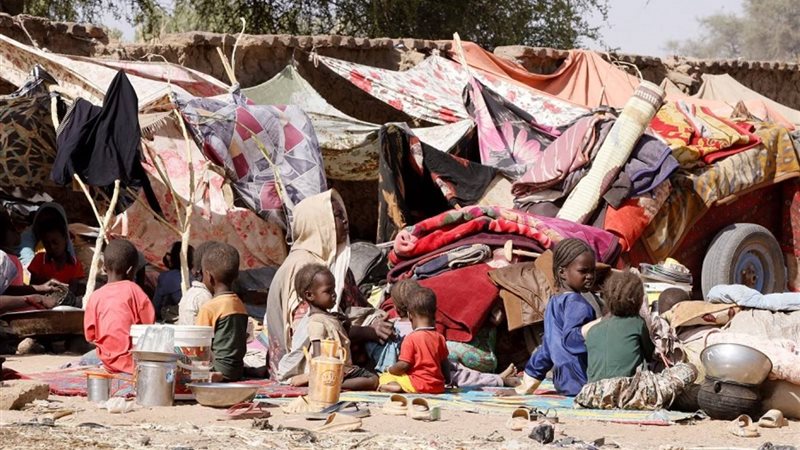A catastrophic humanitarian crisis threatens El Fasher in North Darfur amid warnings of famine and the spread of cholera

The city of El Fasher in North Darfur is facing one of the worst humanitarian crises in Sudan since the outbreak of the ongoing conflict between the Sudanese army and the Rapid Support Forces, according to warnings from local activists. The activists confirmed that the city is "rapidly heading towards an inevitable famine" due to the suffocating siege imposed by the Rapid Support Forces and the complete halt of charitable kitchens ("Takiya"), amid a lack of effective international response.
The activists stated in exclusive remarks to "Al Arabiya/Al Hadath" on Saturday that "the siege of the city has entered its fifteenth month with no signs of ending the humanitarian crisis," exacerbating the suffering of the besieged civilians.
In a related context, the displacement camps in the region are witnessing a serious outbreak of cholera, with 49 deaths recorded in the past 24 hours, bringing the cumulative number of infections since the disease appeared last June to 2,719 cases. Medical sources reported the admission of 93 patients to isolation centers, including 11 children.
In the neighboring West Kordofan state, the "Dar Hamr Emergency Room" (tasked with monitoring humanitarian and security conditions) announced that 250 citizens were infected with cholera and 15 others died in the shelters of displaced persons who fled from the western and southern countryside of the city of Al-Nuhud following attacks by the Rapid Support Forces.
The General Coordination of Displaced and Refugee Camps in Sudan had previously warned of the spread of cholera in Darfur, noting that the number of infections exceeded 2,500 cases, including 46 deaths.
This comes at a time when the Rapid Support Forces continue to escalate their attacks on El Fasher, while international efforts have failed to achieve a humanitarian truce that would allow aid to enter the besieged city for more than a year.
Concerns are growing about the crisis turning into an unprecedented humanitarian disaster, with the continued deterioration of health and living conditions and the lack of effective interventions to save civilians.